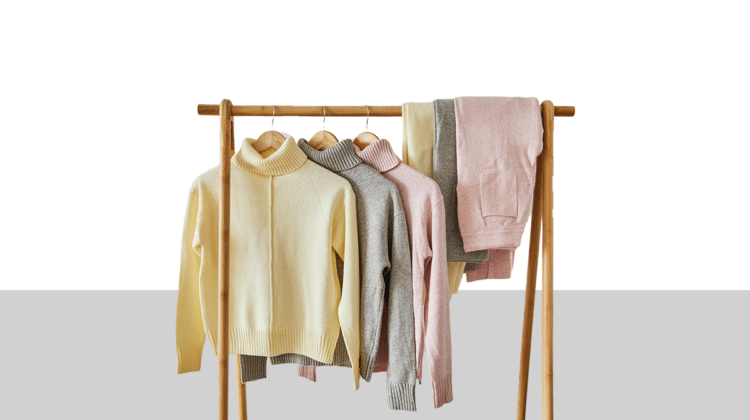
Entering a courtroom can feel like stepping onto a stage. The eyes of the judge, your opposing party, and the gallery are all upon you. The spotlight isn’t just on your words or actions, but on your appearance as well. How you present yourself can have a significant impact on the outcome of your case. Think of your appearance as a silent statement, a non-verbal testimony that speaks volumes about your respect for the court and your seriousness about the proceedings. Are you ready to make the right statement? Let’s explore how to dress in court.
Quick Answers
- It is important to wear professional, conservative attire and maintain good hygiene when attending court.
- Making a positive first impression is essential for success in the courtroom. This can be achieved by selecting neutral colors and avoiding distracting accessories.
- Courtroom etiquette involves dressing appropriately, showing respect to all present, remaining composed at all times, and speaking respectfully.
- Courtroom etiquette and proper dress is also required for Zoom Court family law proceedings
The Importance of Proper Courtroom Attire
Clothing speaks before you do. It’s the visual representation of your personality and beliefs. In a courtroom, your attire becomes a silent yet potent communicator. A clean, well-fitted suit or a neat blouse can make a positive first impression, signaling your respect for the judicial process. Dressing appropriately, or knowing how to wear clothes that suit the occasion, can also boost your confidence, helping you navigate the stressful legal proceedings with a bit more ease.
On the other hand, arriving in a t-shirt, flip flops, or a baseball cap could send a whole different message, potentially undermining your credibility and respect for the court. It’s important to remember that when you wear hats, especially baseball caps, they can also impact the impression you make. You are attending a court proceeding, not a baseball game or a rock concert, and you should dress accordingly to help communicate a message of respect to the court.
First Impressions Matter
A courtroom is not the place for sartorial experiments or casual attire. Just as a poorly structured argument can hurt your case, an inappropriate outfit can diminish your standing. A t-shirt or flip-flops can create a negative first impression, leading the judge to question your seriousness and respect for the courtroom. Allow your outfit to communicate to the judge that you take this matter seriously and that you have respect for the court.
Just like a well-prepared case, a well-chosen outfit shows that you have taken the time to dress appropriately, respecting the court’s decorum and leading to a more favorable first impression.
Showing Respect for the Legal System
Respect is a cornerstone of the legal system. Choice of attire is a visible and immediate demonstration of that respect. Showing the judge that you respect them and, therefore, that you respect the court and its authority in your proceeding can only improve your chances of a favorable outcome. Wearing a suit or a conservative dress to court signifies that you understand and value the gravity of the proceedings. This not only demonstrates your respect for the court and its authority but also your commitment to the process.
Think of it as a symbolic gesture that can positively influence how you are perceived by the judge and everyone else in the courtroom.
Dressing for Success: Men’s Guide to Court Attire
Choosing appropriate courtroom attire for men might seem challenging, but it needn’t be so. The key is to keep it simple, professional, and conservative. This isn’t the time to flaunt your fashion sense. Think of business or business casual attire as your safest bet. But what does this mean in practice? Let’s break it down.
Suits and Business Attire
A suit is not necessary for a family court appearance. Tailored slacks and a dress shirt or polo shirt can also serve the purpose. Remember, the aim is to look neat, respectful, and serious about the proceedings. Make sure your clothes are clean and that you have made sure to remove any excessive wrinkles, as you want to give the court the idea that you can be responsible for your children and yourself.
Accessories and Grooming
As far as courtroom accessories are concerned, moderation is key. A simple watch can serve the purpose – you know what time it is.. Avoid flashy jewelry or anything that can distract attention from your case. Grooming is equally important. A neat shave, trimmed facial hair, and a conservative haircut can enhance your professional image. You want to create an image that you are responsible and that this court proceeding is important to you.
In essence, your goal is to appear polished, confident, and respectful.
Dressing for Success: Women’s Guide to Court Attire
When women dress for court, they need to strike a careful balance between professionalism and modesty. Similar to men, the key is to dress conservatively and lean towards business-like attire. That being said, it doesn’t imply that you should sacrifice style or personality. The goal is to project a respectful and serious image that leaves a positive impact on the judge and other courtroom attendees.
Pants, Skirts, and Blouses
Whether it’s pants, a skirt, or a blouse, the rule of thumb is to keep it conservative and professional when it comes to dress codes. Opt for neutral colors such as navy blue, black, or gray. Avoid short skirts or revealing blouses that could be deemed inappropriate.
Remember, the court is a place of respect and decorum, and your attire should reflect that. It’s important to wear dress shoes in such formal settings. Be sure your clothing is clean and free of excessive wrinkles.
Accessories and Grooming
Accessories hold the potential to either enhance or detract from an outfit, and in the courtroom context, they can shape perceptions. Keep jewelry minimal and tasteful. When it comes to grooming, aim for a neat and professional look. Hairstyles should be conservative and makeup should be subtle.
In the interest of maintaining a professional appearance, visible tattoos or piercings should be hidden as best as possible.
Color Choices and Their Impact
The color of your attire can significantly affect your image in the courtroom. Certain colors can evoke certain emotions or judgments. Though it might seem inconsequential, the color of your clothing could subtly sway the outcome of your case.
Best Colors for Court
Neutral and dark shades such as navy blue, gray, and white are generally considered the best colors for court. These colors convey stability and professionalism, which can reflect positively on your character and credibility. Dark leather shoes are also a great choice to complement these colors and maintain a professional appearance.
Colors to Avoid
Bright and loud colors can signal aggression or distract attention from your case. Similarly, black can come across as authoritative and may hinder your chances of eliciting sympathy. Hence, it is advisable to stick to conservative colors that can convey respect and seriousness, such as navy blue, dark gray, burgundy, and forest green.
Courtroom Etiquette and Behavior
Dressing appropriately is just one aspect of courtroom etiquette. The way you conduct yourself in the courtroom holds equal significance. Respect for the judge, maintaining composure, and addressing others appropriately are all crucial elements of courtroom behavior.
Addressing the Judge and Others
Addressing the judge and others in the courtroom properly is a sign of respect and professionalism. Using formal titles such as ‘Your Honor’ or ‘Judge [Last Name]’ while addressing the judge, and using official titles when addressing court officials, demonstrates your understanding and respect for the legal process.
Maintaining Composure
Court proceedings, such as a court hearing, can be stressful and emotionally charged. Maintaining composure, regardless of the situation, is crucial. Staying calm, focused, and respectful throughout the proceedings can positively influence the outcome of your case.
Common Courtroom Dress Code Violations to Avoid
While we’ve provided guidance on what to wear and how to act in court, it’s just as important to be aware of what to avoid. Certain types of attire and grooming habits are viewed as breaches of the courtroom dress code and should be sidestepped.
Inappropriate Clothing Items
Certain clothing items like jeans, shorts, sandals, and other overly casual attire are considered inappropriate for court. These items can reflect a lack of seriousness or respect for the court when individuals wear jeans or other casual clothing.
Grooming and Personal Hygiene
Grooming and personal hygiene are just as important as your attire. Dirty or messy hair, strong odors, and visible tattoos or piercings can negatively influence the court’s perception of you.
Preparing for Your Court Appearance
Being well-prepared is fundamental to a successful court appearance. Beyond knowing the details of your case and being prepared for your divorce trial, knowing what to wear, how to groom yourself, and how to behave are all crucial aspects of your preparation.
Selecting an Outfit
Choosing an outfit for court isn’t merely about fashion; it’s about putting your best foot forward. Choosing professional, conservative, and appropriate attire, including dress shoes like closed toe dress shoes, can create a positive impression and set the tone for your court appearance.
Final Touches
Finalizing your court appearance involves ensuring appropriate grooming, eliminating any distracting accessories, and adhering to good hygiene practices. These final touches can enhance your overall appearance and ensure you are presenting yourself in the best possible light.

Schedule a Consultation with Attorney Zachary Townsend
Call or text today – (815) 200-8802
Frequently Asked Questions
What should I wear when I go to court?
Business casual attire is recommended for court appearances. Examples of this type of clothing include dress slacks, blouses, or skirts paired with a button-down shirt or a sweater. Avoid wearing jeans and t-shirts.
Is it OK to wear jeans to court?
It is not recommended to wear jeans to court, as they do not convey respect for the court and may send the wrong message. Instead, focus on wearing slacks, skirts, or khakis that fit well and are wrinkle-free.
What is the best color for a woman to wear to court?
For the most professional look, it is best to wear navy blue or dark gray to court. These colors suggest seriousness without the associated negative connotations that often come with black.


